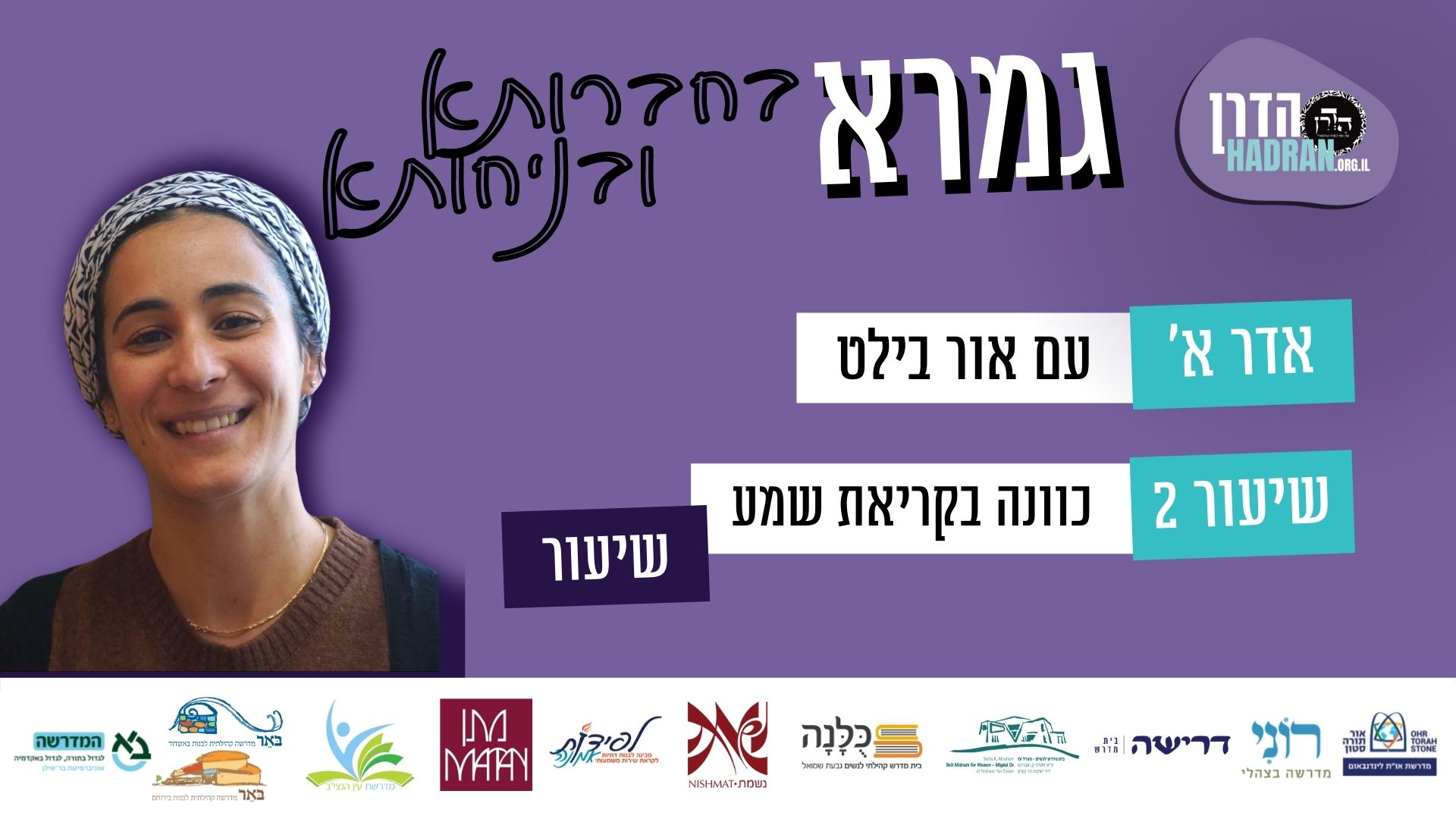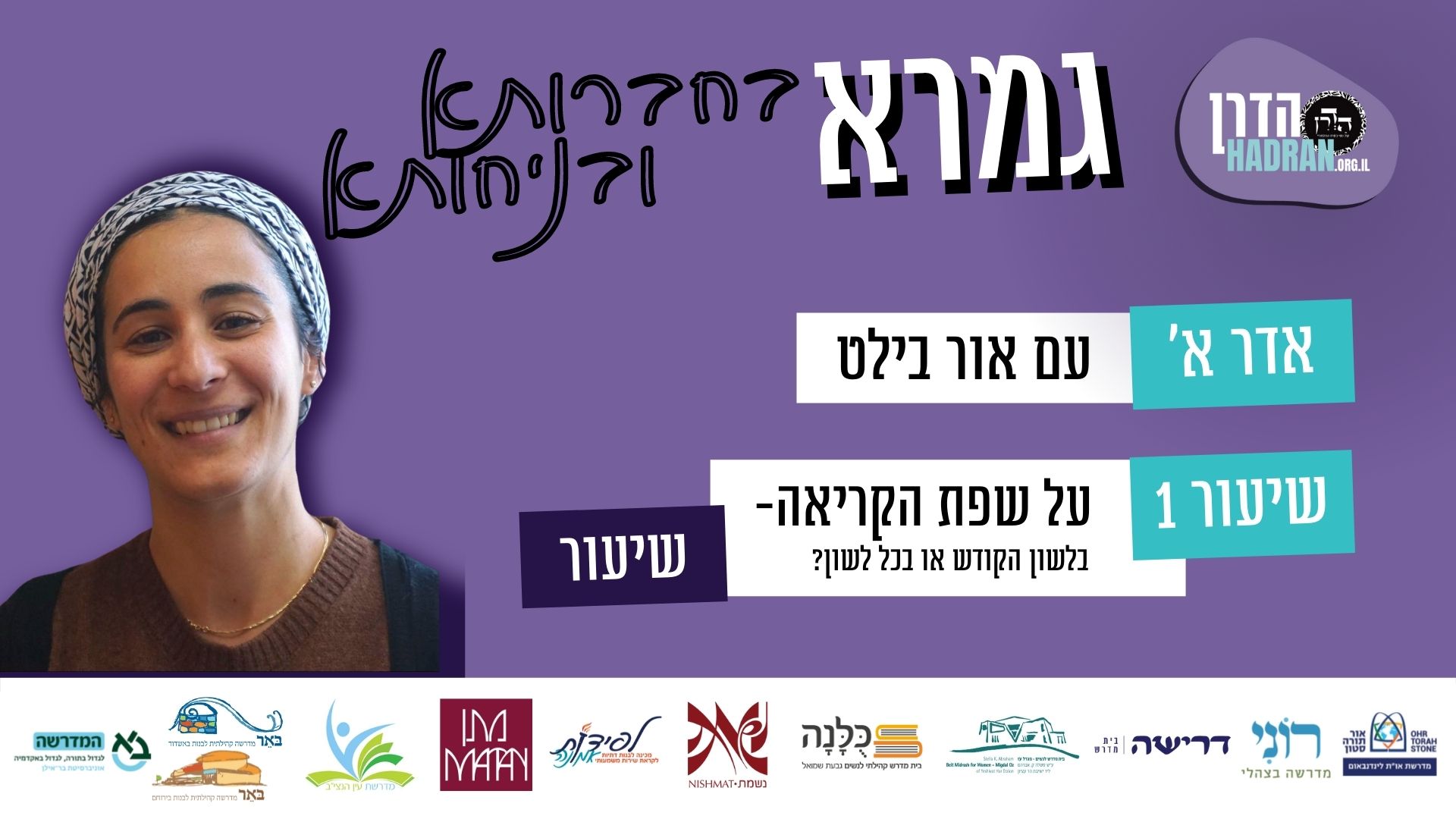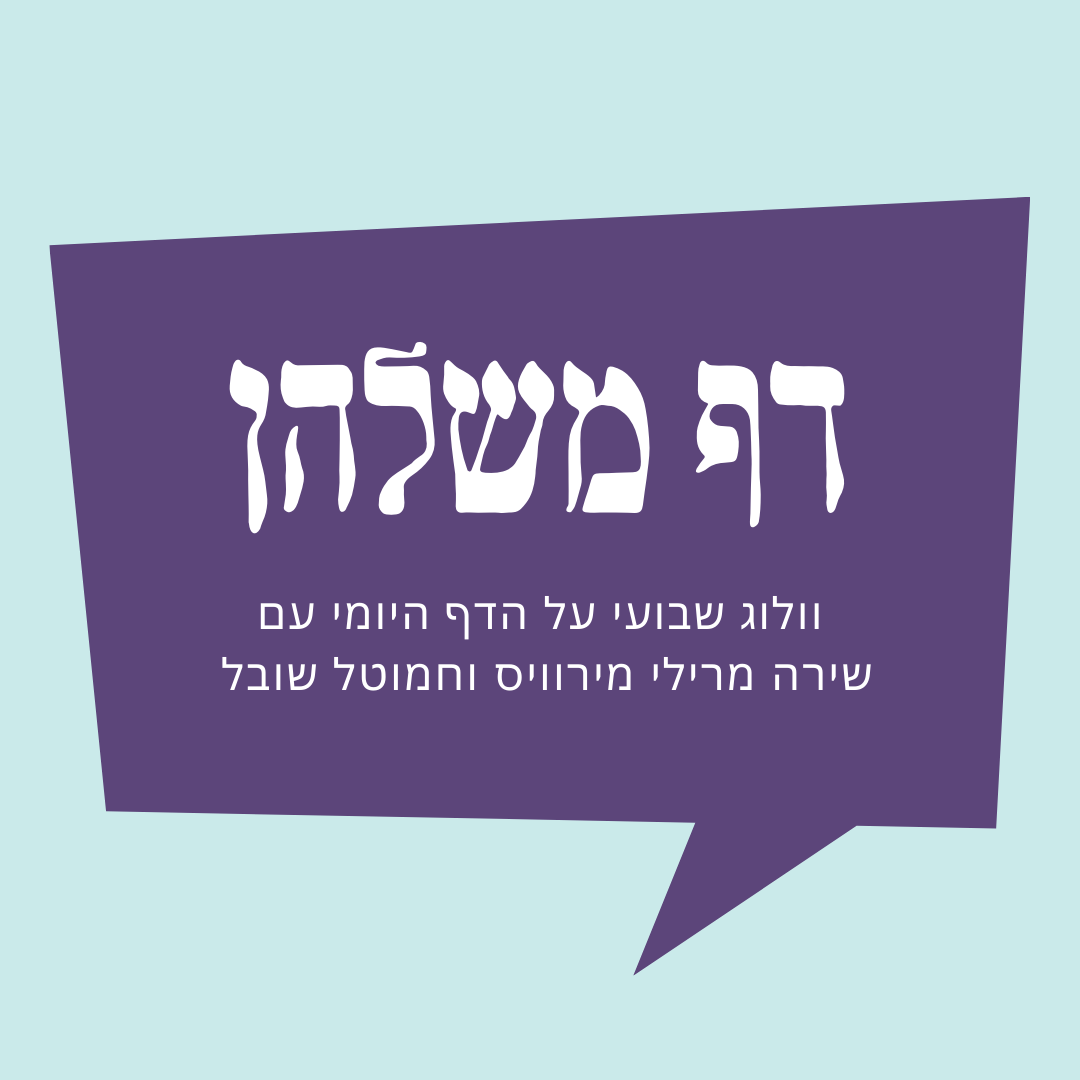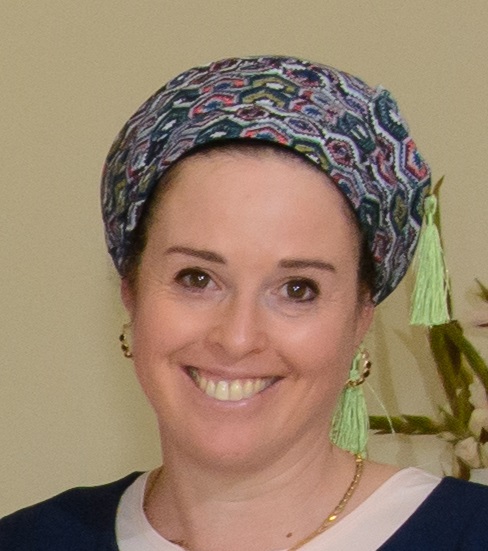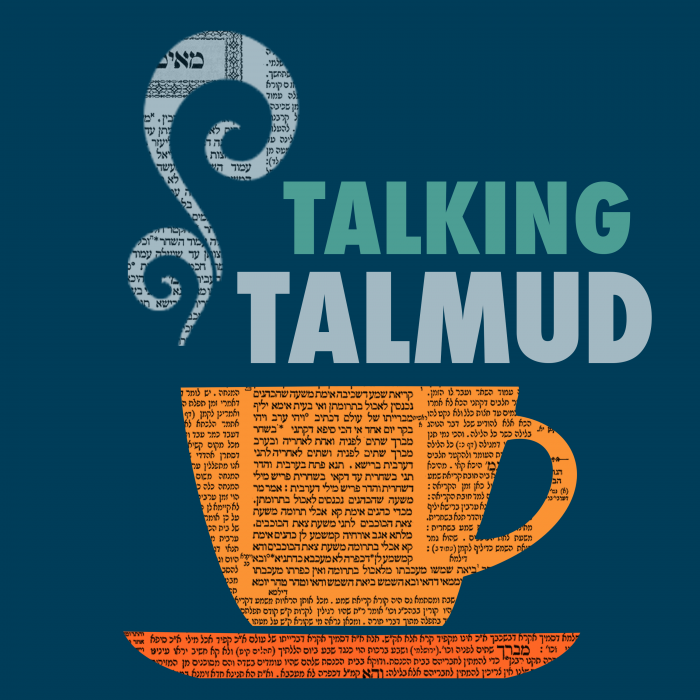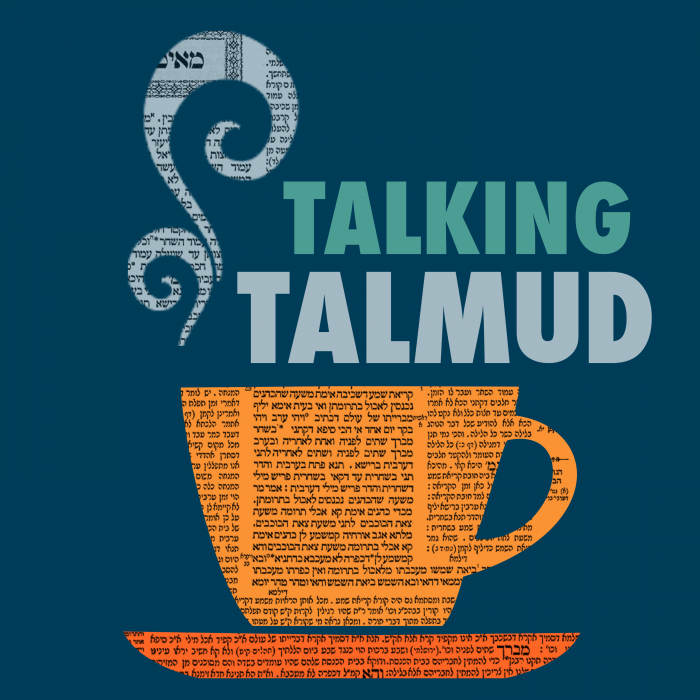ר’ אלעזר הסביר מה עושים כשטועים בחלקים מסויימים בקריאת שמע – לאן חוזרים? מהי ההלכה לגבי אומנים שבמאצע עבודה כשמגיע זמן קריאת שמע? האם יש הבדל בין קריאת שמע לבין תפילה? האם יש הבדל בין בעל הבית לבין הואמן שבאמע עבודה? חתן פטור מקריאת שמע – למה? המשנה מביאה כמה סיפורים על רבן גמליאל – כשהיה חתן, כשמתה אשתו וכשמת טבי עבדו. האם נהג כמו כולם או בצורה שונה? למה? הגמרא מביאה כמה נוסחאות של תפילה פרטיות שאמרו חכמים מסוימים בסיום תפילת שמונה עשרה.
הלימוד השבוע מוקדש לזכות ולשלום הַיְימׇנוֹט אֱמוּנָה בַּת באנצ’י (קָסָאוּ) בת 11 שנעלמה במקום מגוריה בצפת, לפני שנתיים, ביום ט”ז אדר תשפ”ד (25.2.24), ולא נודעו עקבותיה.
הלימוד השבוע מוקדש למען ביטחון המדינה, החיילים והאזרחים, ולמען חירותו של העם האיראני. שנזכה בקרוב שיתקיים בנו הפסוק: "לַיְּהוּדִים הָיְתָה אוֹרָה וְשִׂמְחָה וְשָׂשֹׂן וִיקָר”.
רוצה להקדיש שיעור?

כלים
הלימוד השבוע מוקדש לזכות ולשלום הַיְימׇנוֹט אֱמוּנָה בַּת באנצ’י (קָסָאוּ) בת 11 שנעלמה במקום מגוריה בצפת, לפני שנתיים, ביום ט”ז אדר תשפ”ד (25.2.24), ולא נודעו עקבותיה.
הלימוד השבוע מוקדש למען ביטחון המדינה, החיילים והאזרחים, ולמען חירותו של העם האיראני. שנזכה בקרוב שיתקיים בנו הפסוק: "לַיְּהוּדִים הָיְתָה אוֹרָה וְשִׂמְחָה וְשָׂשֹׂן וִיקָר”.
כלים
העמקה
רוצה להבין מה באמת קורה מתחת לפני השטח של הסוגיה?
שיעורים, פודקאסטים והרחבות של מיטב המורות שלנו יפתחו לך עוד זוויות וכיווני חשיבה.
חדשה בלימוד הגמרא?
זה הדף הראשון שלך? איזו התרגשות עצומה! יש לנו בדיוק את התכנים והכלים שיעזרו לך לעשות את הצעדים הראשונים ללמידה בקצב וברמה שלך, כך תוכלי להרגיש בנוח גם בתוך הסוגיות המורכבות ומאתגרות.
פסיפס הלומדות שלנו
גלי את קהילת הלומדות שלנו, מגוון נשים, רקעים וסיפורים. כולן חלק מתנועה ומסע מרגש ועוצמתי.
ברכות טז
אֹהָלִים לִנְחָלִים, דִּכְתִיב: ״כִּנְחָלִים נִטָּיוּ כְּגַנּוֹת עֲלֵי נָהָר כַּאֲהָלִים נָטַע וְגוֹ׳״ — לוֹמַר לְךָ: מָה נְחָלִים מַעֲלִין אֶת הָאָדָם מִטּוּמְאָה לְטׇהֳרָה — אַף אֹהָלִים מַעֲלִין אֶת הָאָדָם מִכַּף חוֹבָה לְכַף זְכוּת.
tents juxtaposed to streams, as it is written: “As streams stretched forth, as gardens by the riverside; as aloes [ahalim] planted by the Lord, as cedars by the water” (Numbers 24:6)? The Gemara vocalizes the word ohalim, tents, rather than ahalim. They are juxtaposed in order to tell you: Just as streams elevate a person from ritual impurity to purity after he immerses himself in their water, so too tents of Torah elevate a person from the scale of guilt to the scale of merit.
״הַקּוֹרֵא לְמַפְרֵעַ לֹא יָצָא וְכוּ׳״.
We learned in our mishna: One who recited Shema out of order did not fulfill his obligation. One who recited and erred, should return to the place in Shema that he erred.
רַבִּי אַמֵּי וְרַבִּי אַסִּי הֲווֹ קָא קָטְרִין לֵיהּ גְּנָנָא לְרַבִּי אֶלְעָזָר. אֲמַר לְהוּ: אַדְּהָכִי וְהָכִי אֵיזִיל וְאֶשְׁמַע מִלְּתָא דְבֵי מִדְרְשָׁא, וְאֵיתֵי וְאֵימָא לְכוּ. אֲזַל אַשְׁכְּחֵיהּ לְתַנָּא דְּקָתָנֵי קַמֵּיהּ דְּרַבִּי יוֹחָנָן:
With regard to an error in the recitation of Shema, the Gemara recounts: Rabbi Ami and Rabbi Asi were once tying a wedding canopy in preparation for the wedding of Rabbi Elazar. He said to them: In the meantime, until you finish, I will go and hear something in the study hall, and I will come and say it to you. He went and found the tanna who recited mishnayot in the study hall, who was reciting this Tosefta before Rabbi Yoḥanan:
קָרָא וְטָעָה וְאֵינוֹ יוֹדֵעַ לְהֵיכָן טָעָה, בְּאֶמְצַע הַפֶּרֶק — יַחְזוֹר לָרֹאשׁ. בֵּין פֶּרֶק לְפֶרֶק — יַחְזוֹר לְפֶרֶק רִאשׁוֹן. בֵּין כְּתִיבָה לִכְתִיבָה — יַחְזוֹר לִכְתִיבָה רִאשׁוֹנָה.
One who recited Shema and erred, and does not know where exactly he erred; if he was in the middle of a paragraph when he realized his error, he must return to the beginning of the paragraph; if he was between one paragraph and another when he realized his error but does not remember between which paragraphs, he must return to the first break between paragraphs. Similarly, if one erred between writing and writing, i.e., between the verse: “And you shall write them on the door posts of your house and on your gates” (Deuteronomy 6:9) in the first paragraph and the identical verse (Deuteronomy 11:20) in the second paragraph, he must return to the first writing.
אֲמַר לֵיהּ רַבִּי יוֹחָנָן: לֹא שָׁנוּ אֶלָּא שֶׁלֹּא פָּתַח בִּ״לְמַעַן יִרְבּוּ יְמֵיכֶם״, אֲבָל פָּתַח בִּ״לְמַעַן יִרְבּוּ יְמֵיכֶם״ — סִרְכֵיהּ נָקֵט וְאָתֵי.
Rabbi Yoḥanan said to him: They only taught this halakha in a case where one did not yet begin: “In order to lengthen your days” (Deuteronomy 11:21) which follows that verse at the end of the second paragraph. However, if he already began to recite: In order to lengthen your days, he can assume that he assumed his routine and continued and completed the second paragraph.
אֲתָא וַאֲמַר לְהוּ. אֲמַרוּ לֵיהּ: אִלּוּ לֹא בָּאנוּ אֶלָּא לִשְׁמוֹעַ דָּבָר זֶה — דַּיֵּינוּ.
Rabbi Elazar came and told Rabbi Ami and Rabbi Asi what he heard. They said to him: Had we come only to hear this, it would have been sufficient.
מַתְנִי׳ הָאוּמָּנִין — קוֹרִין בְּרֹאשׁ הָאִילָן וּבְרֹאשׁ הַנִּדְבָּךְ. מַה שֶּׁאֵינָן רַשָּׁאִין לַעֲשׂוֹת כֵּן בַּתְּפִלָּה.
MISHNA: The primary issue in this mishna is the requisite degree of concentration when reciting Shema. Laborers engaged in their work may recite Shema while standing atop the tree or atop the course of stones in a wall under construction, which they are not permitted to do for the Amida prayer, which requires intent of the heart.
חָתָן פָּטוּר מִקְּרִיאַת שְׁמַע לַיְלָה הָרִאשׁוֹנָה וְעַד מוֹצָאֵי שַׁבָּת אִם לֹא עָשָׂה מַעֲשֶׂה. וּמַעֲשֶׂה בְּרַבָּן גַּמְלִיאֵל שֶׁנָּשָׂא אִשָּׁה וְקָרָא לַיְלָה הָרִאשׁוֹנָה. אָמְרוּ לוֹ תַּלְמִידָיו: לִמַּדְתָּנוּ רַבֵּינוּ שֶׁחָתָן פָּטוּר מִקְּרִיאַת שְׁמַע? אָמַר לָהֶם אֵינִי שׁוֹמֵעַ לָכֶם לְבַטֵּל הֵימֶנִי מַלְכוּת שָׁמַיִם אֲפִילּוּ שָׁעָה אַחַת.
The mishna continues: A groom is exempt from the recitation of Shema on the first night of his marriage, which was generally Wednesday night, until Saturday night, if he has not taken action and consummated the marriage, as he is preoccupied by concerns related to consummation of the marriage. The mishna relates that there was an incident where Rabban Gamliel married a woman and recited Shema even the first night. His students said to him: Didn’t our teacher teach us that a groom is exempt from the recitation of Shema? He answered them: Nevertheless, I am not listening to you to refrain from reciting Shema, and in so doing preclude myself from the acceptance of the yoke of the Kingdom of Heaven, for even one moment.
גְּמָ׳ תָּנוּ רַבָּנַן: הָאוּמָּנִין — קוֹרִין בְּרֹאשׁ הָאִילָן וּבְרֹאשׁ הַנִּדְבָּךְ. וּמִתְפַּלְּלִין בְּרֹאשׁ הַזַּיִת וּבְרֹאשׁ הַתְּאֵנָה. וּשְׁאָר כָּל הָאִילָנוֹת — יוֹרְדִים לְמַטָּה וּמִתְפַּלְּלִין. וּבַעַל הַבַּיִת, בֵּין כָּךְ וּבֵין כָּךְ יוֹרֵד לְמַטָּה וּמִתְפַּלֵּל, לְפִי שֶׁאֵין דַּעְתּוֹ מְיוּשֶּׁבֶת עָלָיו.
GEMARA: With regard to laborers, the Sages taught in a Tosefta: Laborers, while engaged in their labor, may recite Shema while standing atop the tree or atop the course of stones in a wall under construction. And they may pray atop the olive tree or the fig tree, as those trees have many branches close together, so one could stand on them and focus properly while praying. In the case of all the rest of the trees, however, they must climb down and pray. However, the homeowner, who is self-employed, in all cases, regardless of the type of tree, must climb down and pray, as he will be unable to focus appropriately. Since, in contrast to the laborers, it is his prerogative to climb down and pray, the Sages did not permit him to pray atop the tree.
רָמֵי לֵיהּ רַב מָרִי בְּרַהּ דְּבַת שְׁמוּאֵל לְרָבָא, תְּנַן: הָאוּמָּנִין קוֹרִין בְּרֹאשׁ הָאִילָן וּבְרֹאשׁ הַנִּדְבָּךְ, אַלְמָא לָא בָּעֵי כַּוָּנָה. וּרְמִינְהִי: הַקּוֹרֵא אֶת שְׁמַע צָרִיךְ שֶׁיְּכַוֵּין אֶת לִבּוֹ, שֶׁנֶּאֱמַר: ״שְׁמַע יִשְׂרָאֵל״, וּלְהַלָּן הוּא אוֹמֵר: ״הַסְכֵּת וּשְׁמַע יִשְׂרָאֵל״. מַה לְּהַלָּן בְּ״הַסְכֵּת״ אַף כָּאן בְּ״הַסְכֵּת״.
Rav Mari, son of the daughter of Shmuel, raised a contradiction before Rava: We learned in our mishna: Laborers may recite Shema atop the tree or atop the course of stones in a wall under construction. We see that he does not require intent, simple recitation is sufficient. And he raised a contradiction from the verbal analogy taught in a baraita: One who recites Shema must focus his heart, as it is stated: “Hear [Shema], Israel.” And below, later in Deuteronomy, it says: “Pay attention, and hear [shema], Israel” (Deuteronomy 27:9). Just as there one must pay attention, so too here one must pay attention.
אִשְׁתִּיק. אֲמַר לֵיהּ: מִידֵּי שְׁמִיעַ לָךְ בְּהָא? אֲמַר לֵיהּ: הָכִי אָמַר רַב שֵׁשֶׁת — וְהוּא שֶׁבְּטֵלִין מִמְּלַאכְתָּן וְקוֹרִין.
Rava was silent as he had no response. But he said to him: Have you heard anything on this matter? He replied: Rav Sheshet said as follows: And this halakha, that laborers may recite Shema atop the tree only applies when they are idle from their work and recite it so they can focus their hearts.
וְהָתַנְיָא: בֵּית הִלֵּל אוֹמְרִים עוֹסְקִים בִּמְלַאכְתָּן וְקוֹרִין!
The Gemara challenges this: But wasn’t it taught in a baraita that Beit Hillel say: Laborers engage in their labor and recite Shema?
לָא קַשְׁיָא: הָא בְּפֶרֶק רִאשׁוֹן, הָא בְּפֶרֶק שֵׁנִי.
The Gemara responds: This is not difficult. This, which says that laborers must be idle from their labor, is referring to a case when they are reciting the first paragraph of Shema, while that, which says that they may continue to work, is in a case when they are reciting the second paragraph.
תָּנוּ רַבָּנַן: הַפּוֹעֲלִים שֶׁהָיוּ עוֹשִׂין מְלָאכָה אֵצֶל בַּעַל הַבַּיִת, קוֹרִין קְרִיאַת שְׁמַע וּמְבָרְכִין לְפָנֶיהָ וּלְאַחֲרֶיהָ. וְאוֹכְלִין פִּתָּן וּמְבָרְכִין לְפָנֶיהָ וּלְאַחֲרֶיהָ, וּמִתְפַּלְּלִין תְּפִלָּה שֶׁל שְׁמוֹנֶה עֶשְׂרֵה. אֲבָל אֵין יוֹרְדִין לִפְנֵי הַתֵּיבָה, וְאֵין נוֹשְׂאִין כַּפֵּיהֶם.
The Sages taught in a Tosefta: Laborers who were working for a homeowner are obligated to recite Shema and recite the blessings before it and after it; and when they eat their bread they are obligated to recite the blessing before and after it; and they are obligated to recite the Amida prayer. However, they do not descend before the ark as communal prayer leaders and the priests among them do not lift their hands to recite the Priestly Blessing, so as not to be derelict in the duties they were hired to perform.
וְהָתַנְיָא מֵעֵין שְׁמוֹנֶה עֶשְׂרֵה! אָמַר רַב שֵׁשֶׁת: לָא קַשְׁיָא, הָא — רַבָּן גַּמְלִיאֵל, הָא — רַבִּי יְהוֹשֻׁעַ.
The Gemara challenges this: Didn’t we learn in a different baraita that laborers recite an abridged prayer consisting of a microcosm of the Amida prayer in place of the full Amida prayer? Rav Sheshet said: This is not difficult. This baraita obligating laborers to recite the full Amida prayer is in accordance with the opinion of Rabban Gamliel, as he holds that one must always recite the full eighteen blessings. This baraita which allows laborers to abridge their prayers is in accordance with the opinion of Rabbi Yehoshua, who permits one to abridge the Amida prayer.
אִי רַבִּי יְהוֹשֻׁעַ, מַאי אִירְיָא פּוֹעֲלִים? אֲפִילּוּ כָּל אָדָם נָמֵי!
The Gemara objects: But if this baraita is in accordance with the opinion of Rabbi Yehoshua, why did the baraita discuss a case involving laborers in particular? Rabbi Yehoshua holds that every person may also recite an abridged version of the Amida prayer.
אֶלָּא אִידֵּי וְאִידֵּי רַבָּן גַּמְלִיאֵל, וְלָא קַשְׁיָא: כָּאן, בְּעוֹשִׂין בִּשְׂכָרָן. כָּאן, בְּעוֹשִׂין בִּסְעוּדָתָן.
Rather, we must say that this baraita and that baraita are both in accordance with the opinion of Rabban Gamliel, and this is not difficult: Here, in the baraita where laborers pray the abridged version of the Amida prayer, refers to a case where laborers work for their wage beyond the meal provided by their employer; while here, in the baraita where laborers must pray the full Amida prayer, refers to a case where laborers work only for their meal.
וְהָתַנְיָא: הַפּוֹעֲלִים שֶׁהָיוּ עוֹשִׂים מְלָאכָה אֵצֶל בַּעַל הַבַּיִת — קוֹרִין קְרִיאַת שְׁמַע וּמִתְפַּלְּלִין. וְאוֹכְלִין פִּתָּן — וְאֵין מְבָרְכִים לְפָנֶיהָ, אֲבָל מְבָרְכִין לְאַחֲרֶיהָ שְׁתַּיִם. כֵּיצַד? בְּרָכָה רִאשׁוֹנָה כְּתִקּוּנָהּ, שְׁנִיָּה פּוֹתֵחַ בְּבִרְכַּת הָאָרֶץ וְכוֹלְלִין ״בּוֹנֵה יְרוּשָׁלָיִם״ בְּבִרְכַּת הָאָרֶץ.
And indeed it was taught in a baraita: Laborers who were performing labor for the homeowner recite Shema and pray; and when they eat their bread they do not recite a blessing beforehand because the blessing recited before food is only an obligation by rabbinic law, but they recite two of the three blessings normally recited in the blessing thereafter, the Grace after Meals, which is an obligation by Torah law. How so? The first blessing is recited in its standard formula; the second blessing, he begins to recite the blessing of the land and they include the blessing: Who builds Jerusalem within the blessing of the land, at which point they conclude the Grace after Meals.
בַּמֶּה דְּבָרִים אֲמוּרִים — בְּעוֹשִׂין בִּשְׂכָרָן, אֲבָל עוֹשִׂין בִּסְעוּדָתָן אוֹ שֶׁהָיָה בַּעַל הַבַּיִת מֵיסֵב עִמָּהֶן — מְבָרְכִין כְּתִיקּוּנָהּ.
In what case is this said? This is said with regard to laborers who work for their wage, but if they work for their meal or if the homeowner reclined and ate the meal with them, they recite the blessings in their standard formula.
חָתָן פָּטוּר מִקְּרִיאַת שְׁמַע. תָּנוּ רַבָּנַן: ״בְּשִׁבְתְּךָ בְּבֵיתֶךָ״ — פְּרָט לְעוֹסֵק בְּמִצְוָה. ״וּבְלֶכְתְּךָ בַּדֶּרֶךְ״ — פְּרָט לְחָתָן. מִכָּאן אָמְרוּ: הַכּוֹנֵס אֶת הַבְּתוּלָה — פָּטוּר, וְאֶת הָאַלְמָנָה — חַיָּיב.
We learned in the mishna that a groom is exempt from the recitation of Shema on the first night of his marriage. The Sages taught the source of this halakha in a baraita based on the verse: “When you sit in your home, and when you walk along the way.” When you sit in your home, to the exclusion of one who is engaged in performance of a mitzva, who is exempt from the recitation of Shema; and when you walk along the way, to the exclusion of a groom, who is also exempt from the recitation of Shema. The baraita adds that from here, from this interpretation of the verses, they said: One who marries a virgin is exempt from the recitation of Shema on his wedding night, but one who marries a widow is obligated.
מַאי מַשְׁמַע? אָמַר רַב פָּפָּא: כִּי דֶרֶךְ. מָה דֶּרֶךְ רְשׁוּת, אַף הָכָא נָמֵי רְשׁוּת.
The Gemara clarifies the meaning of this baraita, and asks: From where is it inferred that the verse: “When you walk along the way,” enables us to derive that a groom is exempt from the obligation to recite Shema? Rav Pappa said that it is derived: Like the way; just as the journey along a specific way described in the verse is voluntary and involves no mitzva, so too all of those who are obligated to recite Shema are engaged in voluntary activities. However, one engaged in performance of a mitzva is exempt from the obligation to recite Shema.
מִי לָא עָסְקִינַן דְּקָאָזֵיל לִדְבַר מִצְוָה, וַאֲפִילּוּ הָכִי אָמַר רַחֲמָנָא: לִיקְרֵי.
The Gemara asks: Are we not dealing with a case where one is walking along on his way to perform a mitzva; nevertheless, the Torah said to recite Shema, indicating that he is obligated even if he set out to perform a mitzva.
אִם כֵּן, לֵימָא קְרָא ״בְּלֶכֶת״, מַאי ״בְּלֶכְתְּךָ״ — שְׁמַע מִינַּהּ: בְּלֶכֶת דִּידָךְ הוּא דִּמְחַיְּיבַתְּ, הָא דְמִצְוָה — פְּטִירַתְּ.
The Gemara explains: If so, that the intention was to obligate in all cases, let the Torah say: When walking along the way. What is the meaning of: When you walk along the way? Conclude from this: It is in a case of your walking, meaning that when you do this for your own purposes and of your own volition, you are obligated to recite Shema, but when you go with the objective of performing a mitzva, you are exempt.
אִי הָכִי מַאי אִירְיָא הַכּוֹנֵס אֶת הַבְּתוּלָה? אֲפִילּוּ כּוֹנֵס אֶת הָאַלְמָנָה נָמֵי.
The Gemara questions this: If so, why discuss a case of one who is marrying a virgin in particular? Even one who is marrying a widow is performing a mitzva and should also be exempt.
הָכָא — טְרִיד, וְהָכָא — לָא טְרִיד.
The Gemara responds that nevertheless, there is a distinction between one marrying a virgin and one marrying a widow. Here, in the case of one who marries a virgin, the groom is preoccupied by his thoughts, while here, in the case of one who marries a widow, he is not preoccupied.
אִי מִשּׁוּם טִרְדָּא, אֲפִילּוּ טָבְעָה סְפִינָתוֹ בַּיָּם נָמֵי, אַלְּמָה אָמַר רַבִּי אַבָּא בַּר זַבְדָּא אָמַר רַב: אָבֵל חַיָּיב בְּכָל מִצְוֹת הָאֲמוּרוֹת בַּתּוֹרָה, חוּץ מִן הַתְּפִילִּין שֶׁהֲרֵי נֶאֱמַר בָּהֶן ״פְּאֵר״, שֶׁנֶּאֱמַר ״פְּאֵרְךָ חֲבוֹשׁ עָלֶיךָ וְגוֹ׳״!
The Gemara challenges: If a groom is exempt from the recitation of Shema simply due to preoccupation, then even one who is preoccupied because his ship sank at sea should be exempt. If so, why then did Rabbi Abba bar Zavda say that Rav said: A mourner is obligated in all the mitzvot mentioned in the Torah except for the mitzva to don phylacteries, as the term splendor is stated with regard to phylacteries, as it is stated that the prophet Ezekiel was prohibited to mourn and was told: “Bind your splendor upon yourself” (Ezekiel 24:17). If even a mourner, who is pained and preoccupied, is obligated to recite Shema, clearly preoccupation has no bearing upon one’s obligation.
אָמְרִי הָתָם טִרְדָּא דִרְשׁוּת הָכָא טִרְדָּא דְמִצְוָה.
The Gemara responds: Nevertheless, there is a distinction between the cases. There, it is a case of preoccupation with a voluntary act, as there is no mitzva to be preoccupied with his mourning, but here, in the case of a groom, the cause of the preoccupation is the mitzva itself.
מַתְנִי׳ רָחַץ לַיְלָה הָרִאשׁוֹן שֶׁמֵּתָה אִשְׁתּוֹ. אָמְרוּ לוֹ תַּלְמִידָיו: לִמַּדְתָּנוּ רַבֵּינוּ שֶׁאָבֵל אָסוּר לִרְחוֹץ? אָמַר לָהֶם אֵינִי כִּשְׁאָר בְּנֵי אָדָם, אִסְטְנִיס אֲנִי.
MISHNA: The mishna relates another episode portraying unusual conduct by Rabban Gamliel. He bathed on the first night after his wife died. His students said to him: Have you not taught us, our teacher, that a mourner is prohibited to bathe? He answered them: I am not like other people, I am delicate [istenis]. For me, not bathing causes actual physical distress, and even a mourner need not suffer physical distress as part of his mourning.
וּכְשֶׁמֵּת טָבִי עַבְדּוֹ קִבֵּל עָלָיו תַּנְחוּמִין. אָמְרוּ לוֹ תַּלְמִידָיו: לִמַּדְתָּנוּ רַבֵּינוּ שֶׁאֵין מְקַבְּלִין תַּנְחוּמִין עַל הָעֲבָדִים? אָמַר לָהֶם: אֵין טָבִי עַבְדִּי כִּשְׁאָר כָּל הָעֲבָדִים, כָּשֵׁר הָיָה.
Another exceptional incident is related: And when his slave, Tavi, died, Rabban Gamliel accepted condolences for his death as one would for a close family member. His students said to him: Have you not taught us, our teacher, that one does not accept condolences for the death of slaves? Rabban Gamliel said to his students: My slave, Tavi, is not like all the rest of the slaves, he was virtuous and it is appropriate to accord him the same respect accorded to a family member.
חָתָן אִם רוֹצֶה לִקְרוֹת קְרִיאַת שְׁמַע לַיְלָה הָרִאשׁוֹן — קוֹרֵא, רַבָּן שִׁמְעוֹן בֶּן גַּמְלִיאֵל אוֹמֵר: לֹא כָּל הָרוֹצֶה לִיטּוֹל אֶת הַשֵּׁם, יִטּוֹל.
With regard to the recitation of Shema on one’s wedding night, the Sages said that if, despite his exemption, a groom wishes to recite Shema on the first night, he may do so. Rabban Shimon ben Gamliel says: Not everyone who wishes to assume the reputation of a God-fearing person may assume it, and consequently, not everyone who wishes to recite Shema on his wedding night may do so.
גְּמָ׳ מַאי טַעְמָא דְּרַבָּן (שִׁמְעוֹן בֶּן) גַּמְלִיאֵל? קָסָבַר: אֲנִינוּת לַיְלָה — דְּרַבָּנַן, דִּכְתִיב: ״וְאַחֲרִיתָהּ כְּיוֹם מָר״. וּבִמְקוֹם אִיסְטְנִיס לָא גְזַרוּ בֵּיהּ רַבָּנַן.
GEMARA: With regard to Rabban Gamliel’s bathing on the first night after the death of his wife, the Gemara asks: What is the reason that Rabban Gamliel did not practice the customs of mourning after his wife died? The Gemara answers: He holds that acute mourning [aninut] is in effect only on the day of the death itself, but acute mourning at night is only by rabbinic law, as it is written: “And I will turn your feasts into mourning, and all your songs into lamentations; I will bring sackcloth upon your loins and baldness upon every head; and I will make you like a mourner for an only child, and the end will be like a bitter day” (Amos 8:10). Therefore, by Torah law one’s acute mourning is only during the day, like a bitter day, while the acute mourning at night that follows is only rabbinic. And in the case of a delicate person, the Sages did not issue a decree that one should afflict himself during the period of acute mourning.
וּכְשֶׁמֵּת טָבִי עַבְדּוֹ וְכוּ׳.
We learned in our mishna that: When his servant, Tavi, died, Rabban Gamliel accepted condolences for him.
תָּנוּ רַבָּנַן: עֲבָדִים וּשְׁפָחוֹת אֵין עוֹמְדִין עֲלֵיהֶם בְּשׁוּרָה, וְאֵין אוֹמְרִים עֲלֵיהֶם בִּרְכַּת אֲבֵלִים וְתַנְחוּמֵי אֲבֵלִים.
The Sages taught in a baraita: For slaves and maidservants who die, one does not stand in a row of comforters to console the mourners, and one recites neither the blessing of the mourners nor the consolation of the mourners.
מַעֲשֶׂה וּמֵתָה שִׁפְחָתוֹ שֶׁל רַבִּי אֱלִיעֶזֶר. נִכְנְסוּ תַּלְמִידָיו לְנַחֲמוֹ. כֵּיוָן שֶׁרָאָה אוֹתָם עָלָה לַעֲלִיָּיה, וְעָלוּ אַחֲרָיו. נִכְנַס לָאַנְפִּילוֹן, נִכְנְסוּ אַחֲרָיו. נִכְנַס לַטְּרַקְלִין, נִכְנְסוּ אַחֲרָיו. אָמַר לָהֶם: כִּמְדוּמֶּה אֲנִי שֶׁאַתֶּם נִכְוִים בְּפוֹשְׁרִים, עַכְשָׁיו אִי אַתֶּם נִכְוִים אֲפִילּוּ בְּחַמֵּי חַמִּין, לֹא כָּךְ שָׁנִיתִי לָכֶם: עֲבָדִים וּשְׁפָחוֹת אֵין עוֹמְדִים עֲלֵיהֶם בְּשׁוּרָה, וְאֵין אוֹמְרִים עֲלֵיהֶם בִּרְכַּת אֲבֵלִים וְלֹא תַּנְחוּמֵי אֲבֵלִים? אֶלָּא מָה אוֹמְרִים עֲלֵיהֶם? — כְּשֵׁם שֶׁאוֹמְרִים לוֹ לְאָדָם עַל שׁוֹרוֹ וְעַל חֲמוֹרוֹ שֶׁמֵּתוּ — ״הַמָּקוֹם יְמַלֵּא לְךָ חֶסְרוֹנְךָ״, כָּךְ אוֹמְרִים לוֹ עַל עַבְדּוֹ וְעַל שִׁפְחָתוֹ ״הַמָּקוֹם יְמַלֵּא לְךָ חֶסְרוֹנְךָ״.
An incident is related that when Rabbi Eliezer’s maidservant died, his students entered to console him. When he saw them approaching he went up to the second floor, and they went up after him. He entered the gatehouse [anpilon], and they entered after him. He entered the banquet hall [teraklin], and they entered after him. Having seen them follow him everywhere, he said to them: It seems to me that you would be burned by lukewarm water, meaning that you could take a hint and when I went up to the second floor, you would understand that I did not wish to receive your consolations. Now I see that you are not even burned by boiling hot water. Did I not teach you the following: For slaves and maidservants who die, one does not stand in a row of comforters to console the mourners, and one neither recites the blessing of the mourners nor does he recite the consolation of the mourners, as the relationship between master and slave is not like a familial relationship? Rather, what does one say about them when they die? Just as we say to a person about his ox or donkey which died: May the Omnipresent replenish your loss, so too do we say for one’s slave or maidservant who died: May the Omnipresent replenish your loss, as the connection between a master and his slave is only financial in nature.
תַּנְיָא אִידַּךְ: עֲבָדִים וּשְׁפָחוֹת אֵין מַסְפִּידִין אוֹתָן. רַבִּי יוֹסֵי אוֹמֵר: אִם עֶבֶד כָּשֵׁר הוּא — אוֹמְרִים עָלָיו: ״הוֹי אִישׁ טוֹב וְנֶאֱמָן וְנֶהֱנֶה מִיגִיעוֹ״. אָמְרוּ לוֹ: אִם כֵּן, מָה הִנַּחְתָּ לַכְּשֵׁרִים?
It was taught in another baraita: One does not eulogize slaves and maidservants. Rabbi Yosei says: If he was a virtuous servant, one recites over him a eulogy of sorts: Alas, a good and loyal man who enjoyed the fruits of his hard labor. They said to him: If so, what praise have you left for virtuous Jews? A Jewish person would be proud to be eulogized in that manner.
תָּנוּ רַבָּנַן: אֵין קוֹרִין ״אָבוֹת״ אֶלָּא לִשְׁלֹשָׁה, וְאֵין קוֹרִין ״אִמָּהוֹת״ אֶלָּא לְאַרְבַּע.
The Sages taught in a baraita: One may only call three people patriarchs, Abraham, Isaac, and Jacob, but not Jacob’s children. And one may only call four people matriarchs, Sarah, Rebecca, Rachel, and Leah.
אָבוֹת מַאי טַעְמָא? אִילֵּימָא מִשּׁוּם דְּלָא יָדְעִינַן אִי מֵרְאוּבֵן קָא אָתֵינַן אִי מִשִּׁמְעוֹן קָא אָתֵינַן, אִי הָכִי אִמָּהוֹת נָמֵי לָא יָדְעִינַן אִי מֵרָחֵל קָא אָתֵינַן אִי מִלֵּאָה קָא אָתֵינַן! אֶלָּא, עַד הָכָא חֲשִׁיבִי, טְפִי לָא חֲשִׁיבִי.
The Gemara asks: What is the reason for this exclusivity with regard to the Patriarchs? If you say that it is because we do not know whether we descend from Reuben or from Simon, so we cannot accurately say our father Reuben, for example, if so, with regard to the Matriarchs as well, we do not know whether we descend from Rachel or from Leah, and we should not call Rachel and Leah matriarchs either. Instead, the reason the sons of Jacob are not called patriarchs is not for that reason, but because until Jacob they are significant enough to be referred to as patriarchs, but beyond Jacob, they are not significant enough to be referred to as patriarchs.
תַּנְיָא אִידָךְ: עֲבָדִים וּשְׁפָחוֹת אֵין קוֹרִין אוֹתָם ״אַבָּא פְּלוֹנִי״ וְ״אִמָּא פְּלוֹנִית״. וְשֶׁל רַבָּן גַּמְלִיאֵל הָיוּ קוֹרִים אוֹתָם ״אַבָּא פְּלוֹנִי״ וְ״אִמָּא פְּלוֹנִית״.
This serves as an introduction; although older people are often referred to with the honorific: Father so-and-so, it was taught in another baraita: One may not refer to slaves and maidservants as father [abba] so-and-so or mother [imma] so-and-so. But they would call the slaves and maidservants of Rabban Gamliel “father so-and-so” and “mother so-and-so.”
מַעֲשֶׂה לִסְתּוֹר?! מִשּׁוּם דַּחֲשִׁיבִי.
The Gemara asks: Is a story cited in order to contradict the previously stated halakha? The Gemara answers: There is no contradiction; rather, because Rabban Gamliel’s servants were significant, they were addressed with these honorifics.
אָמַר רַבִּי אֶלְעָזָר: מַאי דִּכְתִיב, ״כֵּן אֲבָרֶכְךָ בְחַיָּי בְּשִׁמְךָ אֶשָּׂא כַפָּי״? ״כֵּן אֲבָרֶכְךָ בְחַיָּי״ — זוֹ קְרִיאַת שְׁמַע. ״בְּשִׁמְךָ אֶשָּׂא כַפָּי״ — זוֹ תְּפִלָּה. וְאִם עוֹשֶׂה כֵּן — עָלָיו הַכָּתוּב אוֹמֵר: ״כְּמוֹ חֵלֶב וָדֶשֶׁן תִּשְׂבַּע נַפְשִׁי״. וְלֹא עוֹד אֶלָּא שֶׁנּוֹחֵל שְׁנֵי עוֹלָמִים — הָעוֹלָם הַזֶּה וְהָעוֹלָם הַבָּא, שֶׁנֶּאֱמַר: ״וְשִׂפְתֵי רְנָנוֹת יְהַלֶּל פִּי״.
The Gemara cites an aggadic statement concerning prayer and the recitation of Shema. Rabbi Elazar said: What is the meaning of that which is written: “So I will bless You as I live, to Your name I will raise my hands” (Psalms 63:5)? So I will bless You as I live, refers to the recitation of Shema, and to Your name I will raise my hands, refers to the Amida prayer, which is characterized as lifting one’s hands to God. And if one does so, recites Shema and prays, the verse says about him: “As with fat and marrow, my soul will be satisfied” (Psalms 63:6). And not only does he receive this reward, but he inherits two worlds, this world and the World-to-Come, as it is stated: “With lips of joys [renanot], my mouth praises You” (Psalms 63:6). The plural, joys, refers to two joys, that of this world and that of the World-to-Come.
רַבִּי אֶלְעָזָר בָּתַר דִּמְסַיֵּים צְלוֹתֵיהּ אָמַר הָכִי: ״יְהִי רָצוֹן מִלְּפָנֶיךָ ה׳ אֱלֹהֵינוּ, שֶׁתְּשַׁכֵּן בְּפוּרֵינוּ אַהֲבָה וְאַחְוָה וְשָׁלוֹם וְרֵיעוּת. וְתַרְבֶּה גְּבוּלֵנוּ בְּתַלְמִידִים וְתַצְלִיחַ סוֹפֵנוּ אַחֲרִית וְתִקְוָה. וְתָשִׂים חֶלְקֵנוּ בְּגַן עֵדֶן, וְתַקְּנֵנוּ בְּחָבֵר טוֹב וְיֵצֶר טוֹב בְּעוֹלָמֶךָ. וְנַשְׁכִּים וְנִמְצָא יִחוּל לְבָבֵנוּ לְיִרְאָה אֶת שְׁמֶךָ, וְתָבֹא לְפָנֶיךָ קוֹרַת נַפְשֵׁנוּ לְטוֹבָה״.
The Gemara describes how after Rabbi Elazar concluded his prayer, he said the following additional prayer:
May it be Your will, Lord our God,
to cause to dwell in our lot love and brotherhood, peace and friendship.
And may You make our borders rich in disciples
and cause us to ultimately succeed, that we will have a good end and hope.
And may You set our portion in the Garden of Eden,
and may You establish for us a good companion and a good inclination in Your world.
And may we rise early and find the aspiration of our hearts to fear Your name,
and may the satisfaction of our souls come before You, i.e., may You hear our prayers that we may have spiritual contentment in this world for the best.
רַבִּי יוֹחָנָן בָּתַר דִּמְסַיֵּים צְלוֹתֵיהּ אָמַר הָכִי: ״יְהִי רָצוֹן מִלְּפָנֶיךָ ה׳ אֱלֹהֵינוּ, שֶׁתָּצִיץ בְּבׇשְׁתֵּנוּ, וְתַבִּיט בְּרָעָתֵנוּ, וְתִתְלַבֵּשׁ בְּרַחֲמֶיךָ, וְתִתְכַּסֶּה בְּעֻזֶּךָ, וְתִתְעַטֵּף בַּחֲסִידוּתֶךָ, וְתִתְאַזֵּר בַּחֲנִינוּתֶךָ, וְתָבֹא לְפָנֶיךָ מִדַּת טוּבְךָ וְעִנְוְתָנוּתֶךְ״.
Similarly, the Gemara recounts that after Rabbi Yoḥanan concluded his prayer, he said the following additional prayer:
May it be Your will, Lord our God,
that You look upon our shame and behold our plight,
that You clothe Yourself in Your mercy,
and cover Yourself with Your might,
that You wrap Yourself in Your loving-kindness,
and gird Yourself with Your grace,
and may Your attributes of goodness and humility come before You.
רַבִּי זֵירָא בָּתַר דִּמְסַיֵּים צְלוֹתֵיהּ אָמַר הָכִי: ״יְהִי רָצוֹן מִלְּפָנֶיךָ ה׳ אֱלֹהֵינוּ, שֶׁלֹּא נֶחֱטָא וְלֹא נֵבוֹשׁ וְלֹא נִכָּלֵם מֵאֲבוֹתֵינוּ״.
Similarly, after Rabbi Zeira concluded his prayers he said the following additional prayer:
May it be Your will, Lord our God,
that we not sin or shame ourselves,
and that we not disgrace ourselves before our forefathers,
in the sense that our actions should not disgrace the actions of our forefathers.
רַבִּי חִיָּיא בָּתַר דִּמְצַלֵּי אָמַר הָכִי: ״יְהִי רָצוֹן מִלְּפָנֶיךָ ה׳ אֱלֹהֵינוּ, שֶׁתְּהֵא תּוֹרָתְךָ אוּמָּנוּתֵנוּ, וְאַל יִדְוֶה לִבֵּנוּ, וְאַל יֶחְשְׁכוּ עֵינֵינוּ״.
After Rabbi Ḥiyya prayed he said the following:
May it be Your will, Lord our God,
that Your Torah should be our vocation,
and may our heart not become faint nor our eyes dim.
רַב בָּתַר צְלוֹתֵיהּ אָמַר הָכִי: ״יְהִי רָצוֹן מִלְּפָנֶיךָ ה׳ אֱלֹהֵינוּ שֶׁתִּתֵּן לָנוּ חַיִּים אֲרוּכִּים, חַיִּים שֶׁל שָׁלוֹם, חַיִּים שֶׁל טוֹבָה, חַיִּים שֶׁל בְּרָכָה, חַיִּים שֶׁל פַּרְנָסָה, חַיִּים שֶׁל חִלּוּץ עֲצָמוֹת, חַיִּים שֶׁיֵּשׁ בָּהֶם יִרְאַת חֵטְא, חַיִּים שֶׁאֵין בָּהֶם בּוּשָׁה וּכְלִימָּה, חַיִּים שֶׁל עוֹשֶׁר וְכָבוֹד, חַיִּים שֶׁתְּהֵא בָּנוּ אַהֲבַת תּוֹרָה וְיִרְאַת שָׁמַיִם, חַיִּים שֶׁתְּמַלֵּא לָנוּ אֶת כָּל מִשְׁאֲלוֹת לִבֵּנוּ לְטוֹבָה״.
After his prayer, Rav said the following:
May it be Your will, Lord our God,
that You grant us long life, a life of peace,
a life of goodness, a life of blessing,
a life of sustenance, a life of freedom of movement from place to place, where we are not tied to one place,
a life of dread of sin, a life without shame and disgrace,
a life of wealth and honor,
a life in which we have love of Torah and reverence for Heaven,
a life in which You fulfill all the desires of our heart for good.
רַבִּי בָּתַר צְלוֹתֵיהּ אָמַר הָכִי: ״יְהִי רָצוֹן מִלְּפָנֶיךָ ה׳ אֱלֹהֵינוּ וֵאלֹהֵי אֲבוֹתֵינוּ, שֶׁתַּצִּילֵנוּ מֵעַזֵּי פָּנִים וּמֵעַזּוּת פָּנִים, מֵאָדָם רָע, וּמִפֶּגַע רָע, מִיֵּצֶר רָע, מֵחָבֵר רָע, מִשָּׁכֵן רָע, וּמִשָּׂטָן הַמַּשְׁחִית, וּמִדִּין קָשֶׁה וּמִבַּעַל דִּין קָשֶׁה, בֵּין שֶׁהוּא בֶּן בְּרִית בֵּין שֶׁאֵינוֹ בֶּן בְּרִית״.
After his prayer, Rabbi Yehuda HaNasi said the following:
May it be Your will, Lord our God, and God of our forefathers,
that You save us from the arrogant and from arrogance in general,
from a bad man, from a bad mishap,
from an evil instinct, from a bad companion,
from a bad neighbor, from the destructive Satan,
from a harsh trial and from a harsh opponent,
whether he is a member of the covenant, a Jew,
or whether he is not a member of the covenant.
וְאַף עַל גַּב דְּקָיְימִי קָצוֹצֵי עֲלֵיהּ דְּרַבִּי.
And the Gemara notes that Rabbi Yehuda HaNasi would recite this prayer every day despite the fact that royal officers stood watch over Rabbi Yehuda HaNasi for his protection; nevertheless, he prayed to avoid conflict or hindrance resulting from arrogance.
רַב סָפְרָא בָּתַר צְלוֹתֵיהּ אָמַר הָכִי: ״יְהִי רָצוֹן מִלְּפָנֶיךָ ה׳ אֱלֹהֵינוּ, שֶׁתָּשִׂים שָׁלוֹם
After his prayer, Rav Safra said the following:
May it be Your will, Lord our God, that You establish peace

